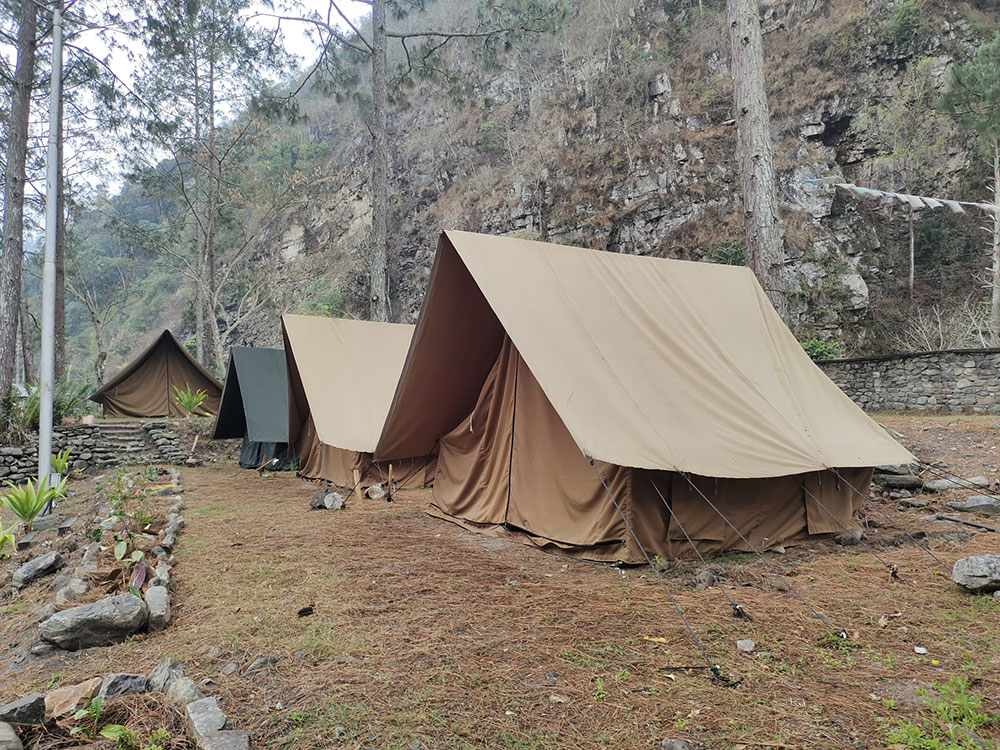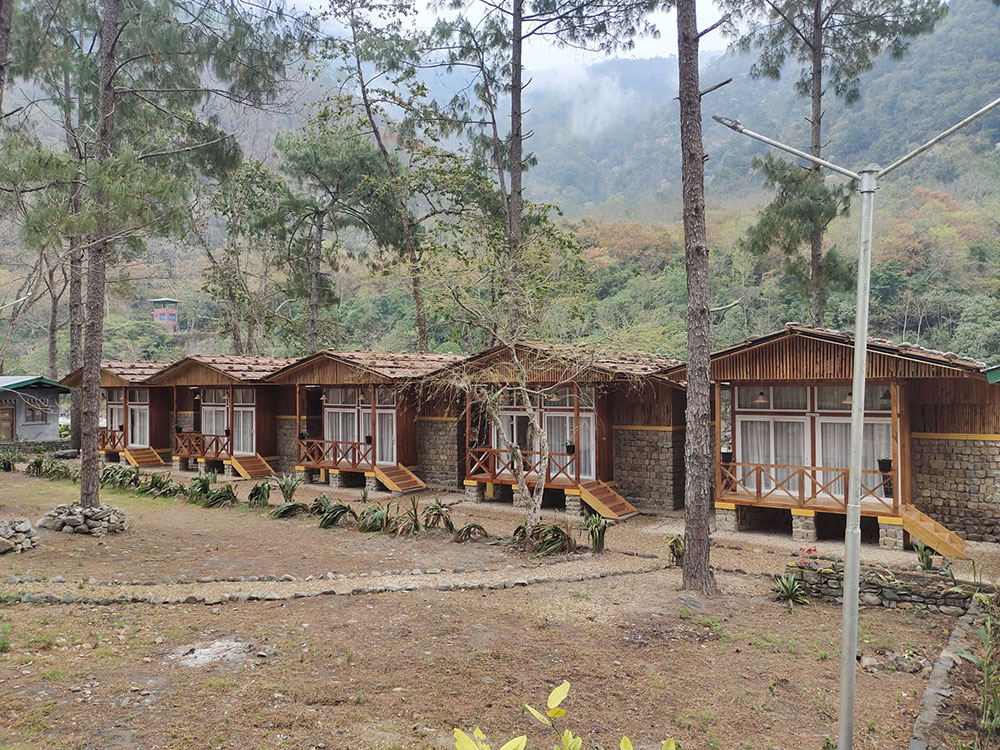Lhakpa Quendren
Zhemgang— Three years ago, Dorji Wangmo from Berti, Zhemgang, quit her watermelon farming due to poor yields. This left her at a crossroads, as watermelon was once a thriving business that supported her family financially.
Without many options, the mother of two turned to other forms of farming, only to be discouraged by human-wildlife conflicts. The next best option happened to be a new beginning. Dorji Wangmco and six other women, all aged between 25 and 28, decided to manage the White-bellied Heron Eco-Lodge with a manager from the village.
The members run the camp, taking shifts both day and night. Their village, Berti, is about a 15-minute walk from the camp.

Berti White-bellied Heron Eco-Lodge has six-cabin and tents
“With the support and initiatives like this, there is no financial pressure. We have found hope in the lodge’s operations,” Dorji said.
With the camp business impacting her life, she does not regret leaving school halfway through the 12th grade. “I am happier operating the lodge than working in the fields.”
The members share 65 percent of their monthly income among themselves, while the remaining 35 percent goes to the lodge’s savings account, with two percent allocated to the Berti community.
“The last five months of running the camp since its establishment have been promising,” explained Dorji Wangmo. Each member receives Nu 15,000 a month, a decent income to sustain a family in a rural village. The income helps cover the expenses for their children and other needs.
In addition, each member also receives Nu 5,000 monthly from the Youth Livelihood and Engagement Programme (YELP), which helps to raise their income a little higher.
However, the operation was not without challenges for them. “Initially, we faced challenges in interacting with our guests. Now we have gained experience, and we are doing well day by day,” Dorji Wangmo said.
The impact of the eco-lodge extends beyond its walls. Local farmers find a marketplace for their produce. The camp purchases livestock and agricultural products from Berti farmers and also helps to sell the surplus to their guests.
The eco-lodge
The Berti White-bellied Heron Eco-Lodge features five cabins, each with a well-furnished bedroom containing two beds and a veranda overlooking the Mangdechhu. Each cabin is equipped with an attached washroom and shower room.
The eco-lodge offers additional facilities, such as open camping, picnicking areas, bonfire spots and dining options. The eco-lodge has six tents within the campus and an extended campsite with eight camps, each containing four tents, which can accommodate two individuals per tent.
The cabin charge is Nu 2,000 per night per cabin for local guests and Nu 4,000 for international tourists. Nu 800 per night for local tourists is charged for the tents, Nu 1,500 for Indian tourists, and Nu 2,000 for international tourists.
The cabins are booked most of the time. With the tourist season at its peak, the eco-lodge has been welcoming an increasing number of international tourists who visit for birdwatching. The Tama to Berti eco-trail provides a perfect blend of adventure, offering opportunities for wildlife sightings and birdwatching.
The extended campsite features hotel-standard washrooms as well as an observation deck overlooking the river. It has a conference hall and has hosted around 10 official meetings.
Each tent and cabin has been designed to ensure that the eco-lodge offers an unforgettable experience. With the flourishing tourism, they have plans to install lighting systems in the tents, ensuring a comfortable stay for their guests.
The lodge is located near the golden masher ponds, along the Berti farm road, about three kilometers from Tingtibi.


